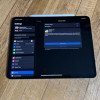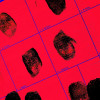Woman ordered to provide her fingerprint to unlock seized iPhone
A Southern California woman was recently ordered to provide her fingerprint to unlock a seized iPhone, according to a report by the Los Angeles Times.
The case highlights the ongoing balancing act between security and convenience and how the law treats something you know (a passcode) as being quite different than something you are (a biometric). Under the Constitution, criminal defendants have the right not to testify against themselves—and providing a passcode could be considered testimonial. However, being compelled to give up something physiological or biometric (such as blood, DNA sample, fingerprint or otherwise), is not.
As the Times reports, Paytsar Bkhchadzhyan was ordered by a federal judge to provide her fingerprint on February 25, and the warrant was executed and unsealed on March 15. "Why authorities wanted Bkhchadzhyan to unlock the phone is unclear," the Times noted. "The phone was seized from a Glendale residence linked to Sevak Mesrobian, who according to a probation report was Bkhchadzhyan's boyfriend and a member of the Armenian Power gang with the moniker of ‘40.’"









































































